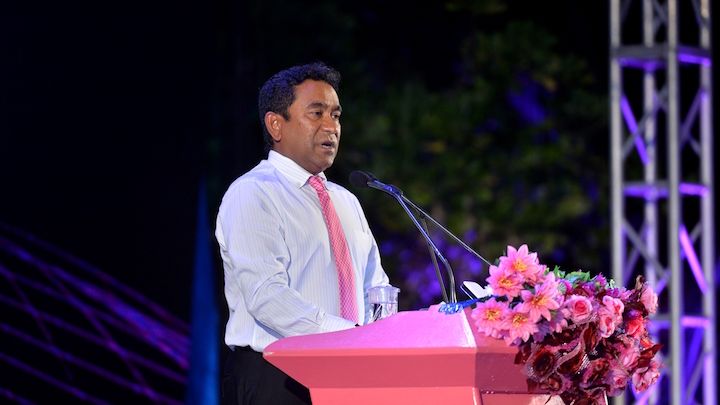Yameen condemned for linking corruption to human nature
“A quality in human nature will remain among Maldivians as well,” the president had said of corruption

22 Jan 2017, 09:00
The opposition has expressed outrage at President Abdulla Yameen’s suggestion that corruption was part of human nature, condemning his comments as an attempt at normalising theft and fraud.
Yameen, who is mired in scandal over the theft of at least US$79million from state coffers, said Thursday that the opportunity for corruption existed in his administration because corruption was “a quality that is in human nature”.
However, he said he has ordered the president’s office to cooperate with the anti-graft watchdog’s investigations.
“When we attempt to do a lot of work, that could not be done previously, in a short period of time, what happens is the cost of goods and the cost of services increase. This is not at all because corruption is involved,” he told ruling party supporters at the Dharubaaruge convention centre.
Become a member
Get full access to our archive and personalise your experience.
Already a member?
Discussion
No comments yet. Be the first to share your thoughts!
No comments yet. Be the first to join the conversation!
Join the Conversation
Sign in to share your thoughts under an alias and take part in the discussion. Independent journalism thrives on open, respectful debate — your voice matters.




